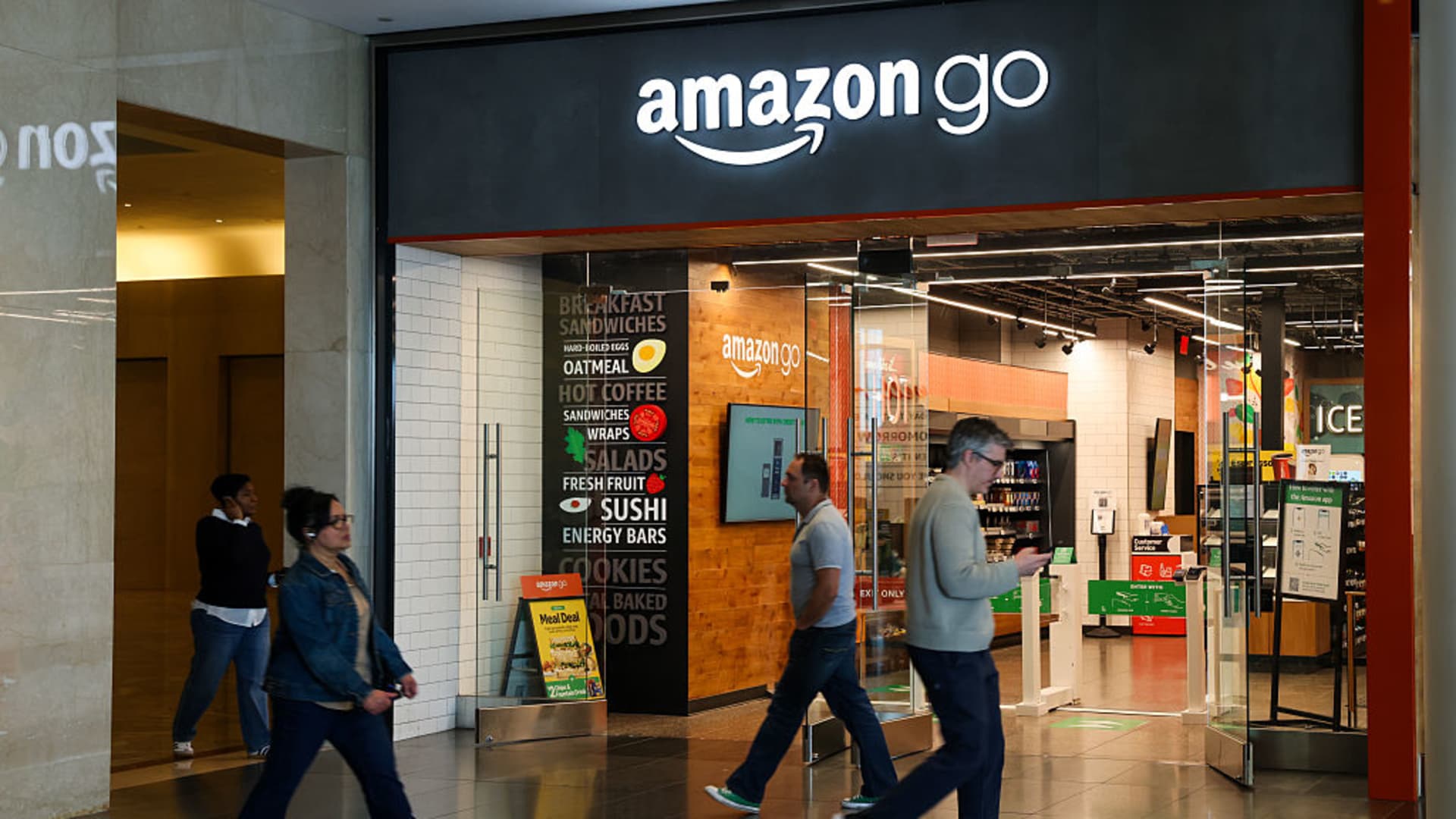After Amazon’s latest results came in above expectations , Wall Street remained largely bullish on the path ahead for the e-commerce behemoth. Shares of Amazon shed 1.5% in Friday’s premarket trading hours after the company gave soft guidance for its current quarter, noting lingering uncertainty from President Donald Trump’s tariffs. Amazon expects its second-quarter operating income to come in between $13 billion and $17.5 billion. However, first-quarter results exceeded analyst estimates, according to LSEG. The company reported earnings of $1.59 per share on revenue of $155.67 billion, which beat the $1.36 per share on revenue of $155.04 billion analysts polled by LSEG were looking for. Overall, most analysts remained bullish on Amazon. Here’s how some of Wall Street’s biggest shops reacted. Deutsche Bank reiterates buy rating, raises price target to $210 from $206 Deutsche Bank’s forecast corresponds to upside of around 10%. “Amazon’s 1Q earnings played out largely as expected with a fairly balanced event. However, while Amazon’s delivery infrastructure, marketplace, and general services scale will undoubtedly allow the company to more successfully navigate the shifting global economy better on both the supply and demand side than essentially any of its competitors, uncertainty around NTM earnings power remains substantial.” Goldman Sachs keeps buy rating, $220 per share price target Goldman Sachs’ target calls for 16% upside going forward. “If past periods of macroeconomic volatility are any future indicator, we believe that AMZN is likely to emerge even more favorably positioned to address the needs of consumers and enterprises on the other side.” Citi maintains buy rating, $225 per share price target Analyst Ronald Josey’s forecast is 18% above Amazon’s Thursday closing price. “We are encouraged with 1Q25 results as revenue and OI came in above FactSet consensus and 2Q guidance was better than expectations, in our view. To be clear, it remains early days regarding tariff impacts, particularly as it relates to 2H inventory supply and demand.” JPMorgan stands by overweight rating, lifts price target to $225 from $220 “Importantly, AMZN remains focused on broad selection, low pricing, & fast delivery, and believes it typically emerges from uncertain macro periods w/greater relative market share gains.” Bank of America reiterates buy rating, increases price target to $230 from $225 Analyst Justin Post’s price target was approximately 21% higher than Amazon’s closing price on Thursday. “Amazon has ‘material’ 3P seller revenue exposure to China and other imports, and AWS lost some ground to Azure in 1Q. However, the platform has shown nice stability in 2025 so far, and we think the stock is well positioned to benefit from any trade agreements over the next 3 months.” Barclays keeps overweight rating, cuts price target to $240 per share from $265 The bank’s target equates to 26% upside. “These results are fairly solid considering the global trade situation, and valuation is at cycle lows, but we expect AMZN shares to remain volatile until things become more clear.” UBS maintains buy rating, lowers price target to $249 from $253 Analyst Stephen Ju’s revised forecast implies upside of 31%. “Taken together, we believe the recent downward estimates revision seems to be ending and we believe we are seeing a tactical buy signal for AMZN shares. Longer term, the secular growth opportunities remain attractive as ecommerce adoption as well as on-premise-to-cloud transition seem to be at similar levels, which point the way for not only Amazon.com but also AWS to be multiples of its current size.” Morgan Stanley stands by overweight rating, $250 price target Morgan Stanley’s price target is 31% above where shares closed on Thursday. “1H:25 was strong as AMZN is investing/executing to manage through uncertainty. But visibility about the cost to deliver a leading platform in 2H/’26 remains low until we get tariff clarity. ’26 EPS largely unchanged (still embedding 145% China tariffs) with a deal the next revision catalyst.” — CNBC’s Michael Bloom and Annie Palmer contributed to this report.





